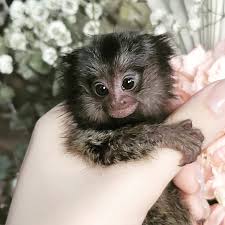Lifespan Of Marmoset Monkey, Marmoset monkeys, known for their small size and lively personalities, are a popular species among primate enthusiasts and researchers alike. Native to South America, particularly Brazil’s tropical rainforests, these monkeys have gained attention due to their social behavior, intelligence, and unique physical traits. One of the key aspects to understand when caring for or studying these creatures is the lifespan of marmoset monkeys.
Average Lifespan in the Wild vs. Captivity
In the wild, the lifespan of a marmoset monkey typically ranges from 6 to 12 years, depending on the species and environmental conditions. However, in captivity—where there is consistent access to food, medical care, and protection from predators—marmosets can live significantly longer. On average, marmosets in zoos or under expert private care may reach up to 15 to 18 years of age.
Factors That Influence Lifespan
Several factors influence the lifespan of marmoset monkeys, including:
- Diet: A balanced diet rich in fruits, insects, tree sap, and small animals contributes to longevity.
- Healthcare: Access to veterinary care can prevent or manage diseases that would otherwise be fatal in the wild.
- Environment: Stress-free environments with proper enrichment reduce the risk of psychological and physical issues.
- Genetics: As with humans, genetics play a crucial role in determining how long a marmoset will live.
Common Health Issues
Despite their small stature, marmoset monkeys are prone to various health concerns that can affect their lifespan:
- Metabolic bone disease (due to lack of calcium or Vitamin D)
- Obesity (often caused by improper diet in captivity)
- Dental problems
- Parasites and infections
Regular health checkups and appropriate living conditions can significantly improve their quality of life and longevity.
Importance of Social Interaction
Marmosets are highly social animals. Isolation can lead to stress and depression, negatively impacting their health. In both the wild and captivity, maintaining strong social bonds contributes to a longer and healthier life.
Conclusion
The lifespan of marmoset monkeys is influenced by a variety of factors, from diet and healthcare to social environment. While they may only live a decade in the wild, proper care can extend their life by several years in captivity. Whether you are a potential pet owner or a researcher, understanding their lifespan is essential for providing the best care possible.
You Might Also Like These:
baby marmosets monkeys for sale in florida


